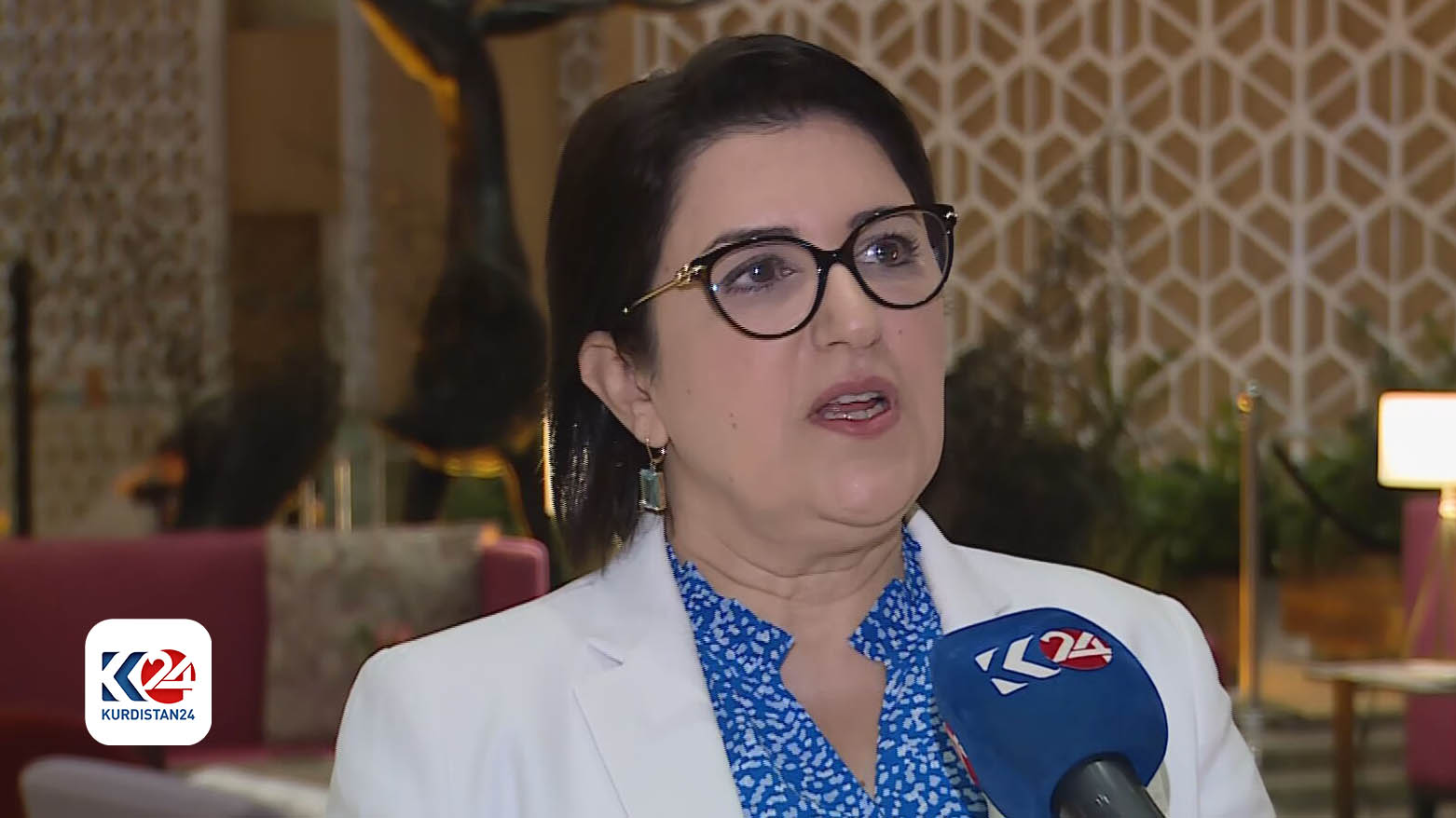‘Kurdistan is active and serious about fighting climate change,' says senior KRG environment official

ERBIL (Kurdistan 24) – Bayan Sami Abdul Rahman, Advisor to the Prime Minister on Foreign Affairs and Climate Change, told Kurdistan 24 that the presence of Prime Minister Masrour Barzani at the 28th UN Climate Conference (COP28) is very important for the Kurdistan Region.
Ms. Rahman stressed that the Prime Minister made a great achievement today to enhance the diplomatic position of the Kurdistan Region in the field of climate change.
“Establishing relations with countries around the world has a good impact. It makes everyone believe that Kurdistan is active and serious about fighting climate change,” she added.
Ms. Rahman also revealed that the KRG Ministry of Agriculture and Water Resources has many projects to build forests and man-made reservoirs, as well as the Ministry of Municipalities and Tourism has recycling projects.
Regarding their meeting with the United Nations Development Programme (UNDP), the senior KRG official said: “we discussed with the UNDP how the Kurdistan Region can benefit from the proceeds of the fund that the whole world wants to create and allocate money to those countries climate change has affected them the most.”
Prime Minister Barzani on Friday was welcomed by United Arab Emirates President Sheikh Mohammed bin Zayed Al Nahyan and UN Secretary-General Antonio Guterres during the opening ceremony of COP28 in Dubai.
Read More: Addressing climate change requires collective action: PM Masrour Barzani
Erbil has long been blanketed in smog from the bustle of vehicle traffic. The lack of a proper public transportation system in the sovereign Kurdish region has caused an overreliance on private vehicles, leading to concerning amounts of pollution, something its leadership has struggled to tackle.
Broadly speaking, the water crisis in Iraq as a whole has been exacerbated by a severe drought that began in 2020. The drought has resulted in less than average rainfall, leading to the drying up of rivers and the depletion of groundwater and soil moisture, earning it a ranking by the UN as the fifth most vulnerable country to global warming. Baghdad has frequently squabbled with Turkey and Iran over the siphoning of its water resources by several dams on its borders with the two neighbors.
Despite challenges, the Prime Minister's Ninth Cabinet has touted several achievements in its fight against global warming. In one such example, the Cabinet said that a daily 150 million cubic feet of flared gas was eliminated after they outlawed the practice.
Earlier in October, Prime Minister Barzani inaugurated an asphalt recycling plant, capable of producing 2,000 tons of tar per day, and recrafting the substance into construction materials. Notably, the plant emits "no dust, smoke, or CO2 gas."
Read More: PM Barzani inaugurates asphalt recycling plant in Erbil
That same month, the KRG's Ministry of Agriculture and Water Resources announced a $500 million artificial water reservoir project in the Koya district, which is intended to conserve water for the agriculture and tourism sectors, support farmers, provide job opportunities, and prevent flash floods.
And in May, Barzani, along with a prominent Chinese construction group, laid the foundation stone of a $100 million solar power plant in Erbil. The plant is expected to contribute 25 megawatts of electricity per hour to the Kurdish electricity grid.
